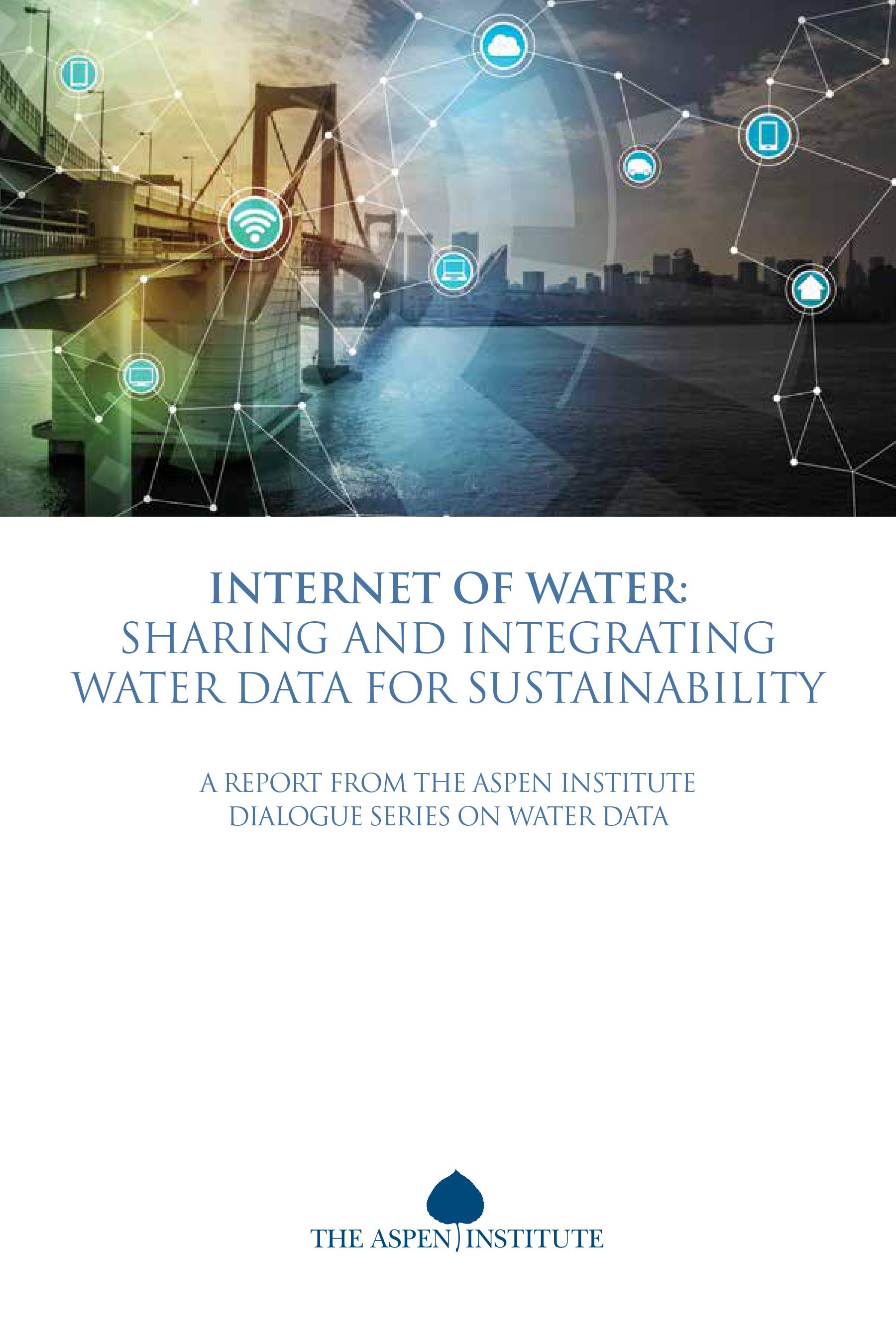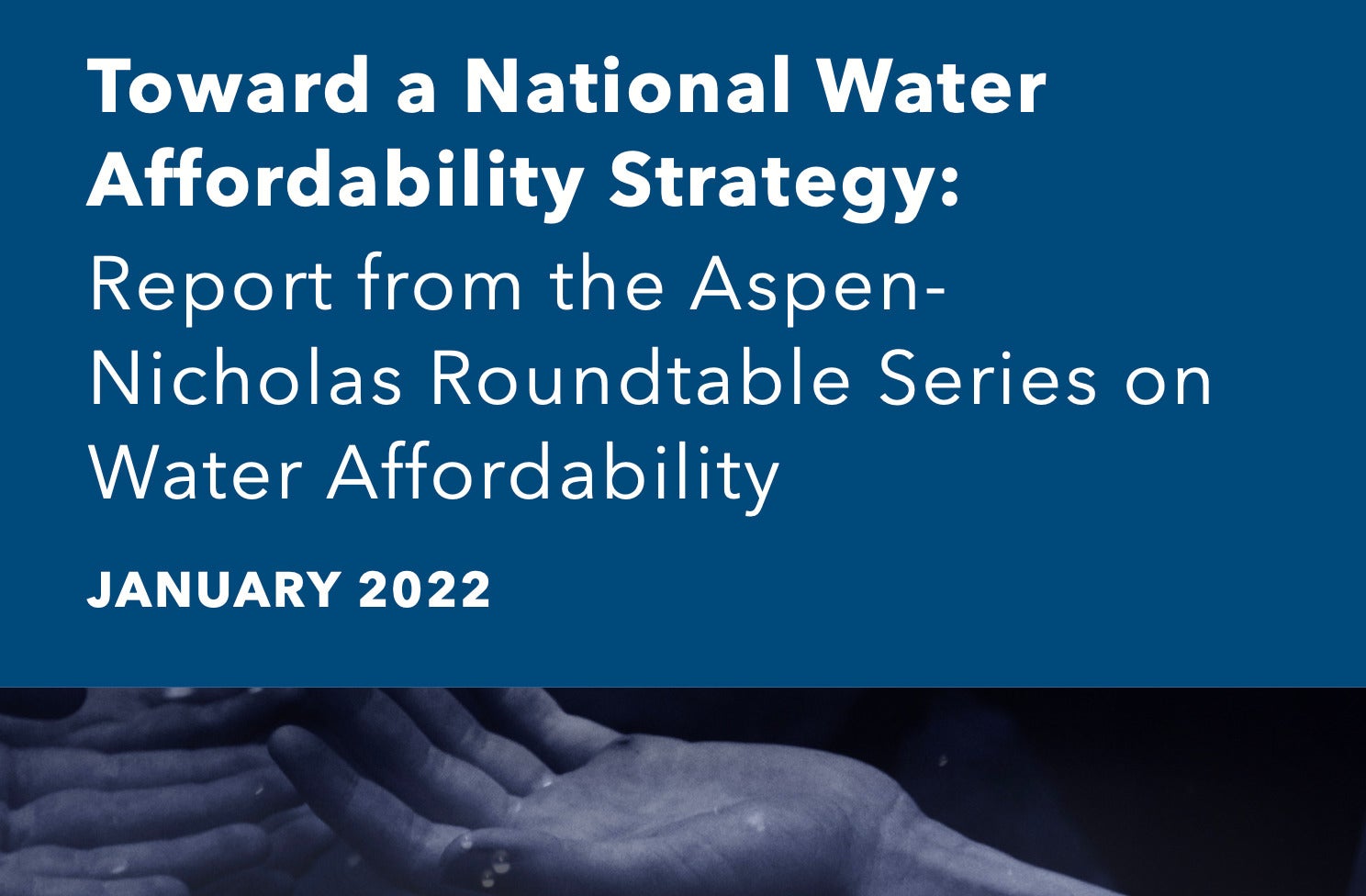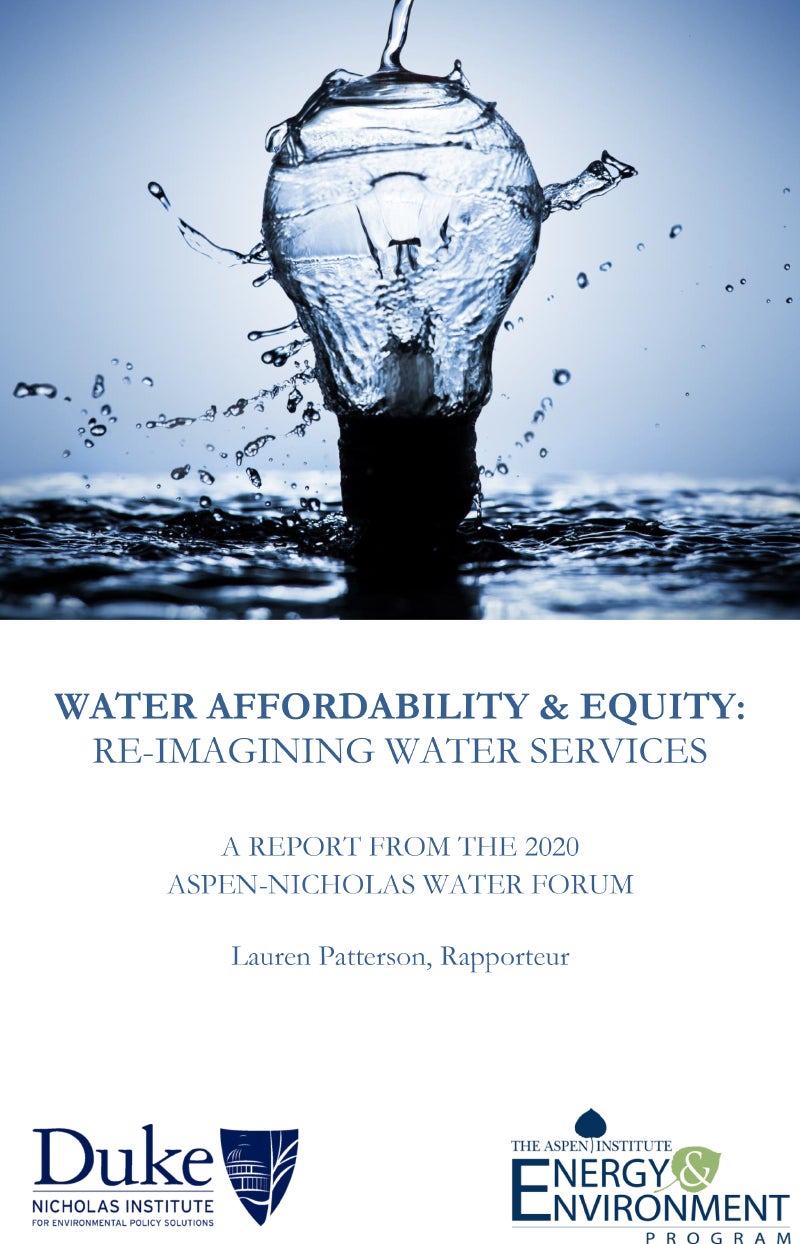Internet of Water: Sharing and Integrating Water Data for Sustainability, a report from the Aspen Institute Dialogue Series on Water Data, is the Dialogue Series’ vision for a national policy framework that addresses institutional barriers to scaling the integration of water data and information to support sustainable water management.
Currently in the United States, we do not have the necessary data we need to manage our water supplies and to pursue innovative solutions to meet our water management challenges. Where data does exist, it is not in a format that is easily accessible or understandable and there are often strong disincentives, fears, and concerns about sharing it. To address this challenge, the Aspen Institute Energy and Environment Program in partnership with the Nicholas Institute for Environmental Policy Solutions at Duke University and Redstone Strategy Group convened the Aspen Institute Dialogue Series on Water Data.
Between May 2016 and February 2017, the Dialogue Series hosted several roundtables with a select group of water experts, managers, policy makers, regulators, and representatives from the private and social sectors, to focus on how to create better water data infrastructure to access and connect publicly collected and reported sources for data, beginning with quantity, quality and use information.
The report highlights and provides a principle-based blueprint recommending a 3-step plan for how to design and launch a feasible and operable “Internet of Water” – a network of interconnected data producers, hubs, and users – that will enable connecting and transmitting water-related data and information in real-time.
To sustainably manage any resource, there needs to be an accounting system comprised of accessible data of a known quality. Connecting water data from across the U.S. will than revolutionize how water resources are being managed; being better situated to address prevalent water problems such as extreme flooding, scarcity, contamination, and restoring aquatic systems.
Key findings from the Dialogue Series on Water Data:
- THE VALUE OF OPEN, SHARED, AND INTEGRATED WATER DATA HAS NOT BEEN WIDELY QUANTIFIED, DOCUMENTED OR COMMUNICATED.
- THE MOST NECESSARY STEP IN USING WATER DATA FOR SUSTAINABILITY IS MAKING PUBLIC WATER DATA OPEN BY DEFAULT, DISCOVERABLE AND DIGITALLY ACCESSIBLE.
- WATER DATA COULD BE MOST EFFECTIVELY INTEGRATED THROUGH AN INTERNET OF WATER.
Action-Oriented Recommendations:
- ENABLE OPEN WATER – An Internet of Water is dependent on there being open water data and increased discoverability of water data.
- INTEGRATE EXISTING PUBLIC WATER DATA and develop tools to facilitated connecting data producers and users.
- CONNECT REGIONAL DATA SHARING COMMUNITIES that can address near-term water management problems for key sectors.


